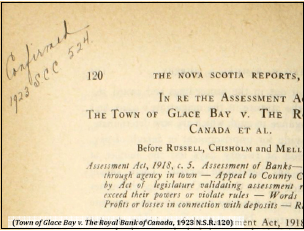The expression “predatory academic publishing” may sound as an oxymoron to a person unaware of the phenomenon. However, it is real, it is here, and it is hurting the most innocent and vulnerable members of academia: postdocs, doctoral students, and young pre-tenured faculty.
Dealing with predatory publishers can at the best lead to monetary losses, long-lasting embarrassment because of being fooled, and the forever exclusion of item from the list of publications (If all of this can be called “the best.” As a doctoral candidate myself, I can vividly imagine the frustration of somebody who would publish a book reporting five or six years of research only not to mention it on the CV). At the worst, especially if the unlucky author signs away the moral rights to the work, it can irremediably tarnish an academic reputation, undermine credibility of the research, and affect the decisions of hiring and tenure committees and granting agencies.The reality of the current highly competitive and overcrowded scholarly marketplace is such that this worst-case scenario is getting frighteningly possible, and Mary Bennet’s well-known moralising about female virtue could be easily applied to an academic reputation. Paraphrasing Jane Austen, the loss of reputation in an academic is irretrievable; one false step involves him/her in endless ruin; his/her reputation is no less brittle than it is beautiful; and he/she cannot be too much guarded in the behaviour towards the undeserving representatives of the publishing industry.
The ink has been flowing for a while with hundreds of pieces already penned on the subject, so why would I need to write another one? What I would like to accomplish with this blog post is to offer some simple and practical advice, some sort of “Predatory Publishing 101,” that should help to instantly weed out most of potentially harmful offers and to provide resources to learn more on the subject. A recent conversation with one of McGill graduate students prompted me to write this post. He /she came to talk to me all elated and excited to share great news. The student got an email from a publisher who offered to publish a book based on a yet unfinished and undefended thesis. To me, acquainted with the practices of predatory academic publishers, this sounded only all too familiar. The ubiquitous name of the publisher confirmed my worst suspicions. It was a well known vanity press, publishing with which would leave a stain on an academic reputation. My immediate advice to the student was to never answer that email, to never publish anything with them, and the most important to always be on guard and seek more information if he/she gets a publishing offer from an unfamiliar source. I felt sorry to break it to the student, but (to say it without a false modesty) this student got lucky. Before subscribing to a publishing deal that could in a long-term harm the academic career, the person benefited from an advice from an information professional who knows what kind of jungle is the modern academic publishing, and where most of its pitfalls and traps are.
To avoid falling into a predatory publishing trap, if you get a publishing/conference presentation offer from an unfamiliar source, get a second opinion, talk to an information professional/librarian, check resources available for you (see below), Google the publisher’s name, and do a search on Twitter to find information about them. If after a bit of research, you can say “yes” to most of the following, you need to be extra careful and seriously consider rejecting or, even better, not replying to the offer:
- It is not specified in their email where they got the information about your research: your recent conference presentation, your thesis supervisor, your colleague, etc.
- You are not a member of their “scholarly” society and never subscribed to their listserv.
- They mention on the website that they may charge their authors some “modest” editing/printing/book production fees.
- They do not mention or are vague about peer or editorial review process on their website.
- There is information raising suspicions on the web (lawsuits aiming to take them off the lists of vanity/predatory presses, disclaimers that they are not a vanity or predatory publisher/journal, tweets and blog posts from frustrated scholars describing dishonest dealings and swindling of the money).
- Their name looks very similar but is not exactly the same as a name of a respectable publishing house, a well-known academic institution, or a reputable journal.
- The contract they ask you to sign stipulates that you will relinquish not only the copyright to your work but also the moral rights.
This list is far from being complete, but it should give you a good start. To know more on the subject and to protect yourself from the mistakes with the long-lasting consequences, you can check the following sources:
Good luck with your research and publications!

